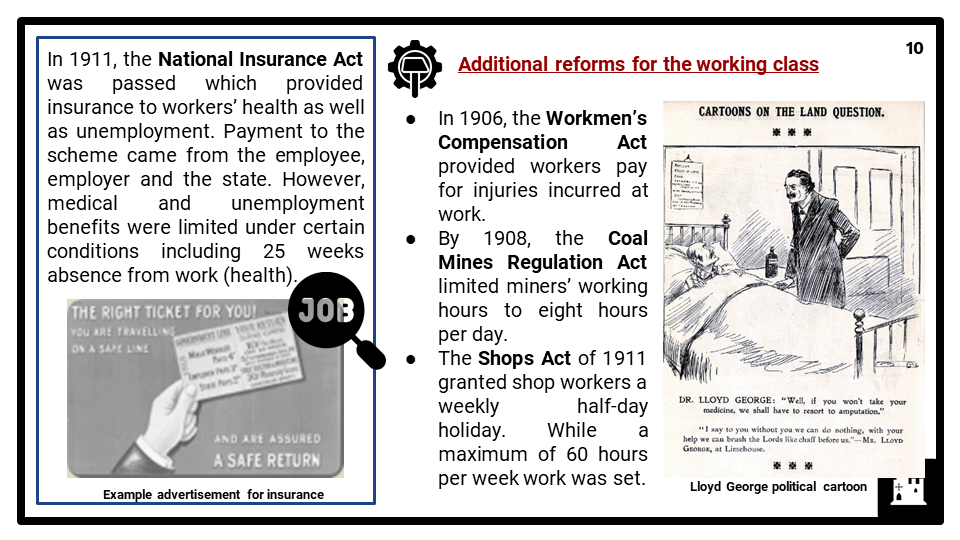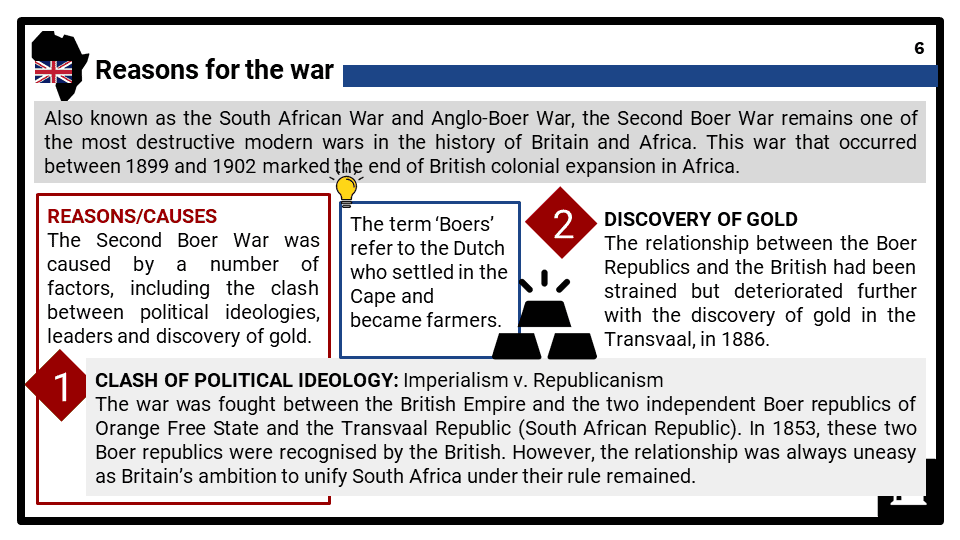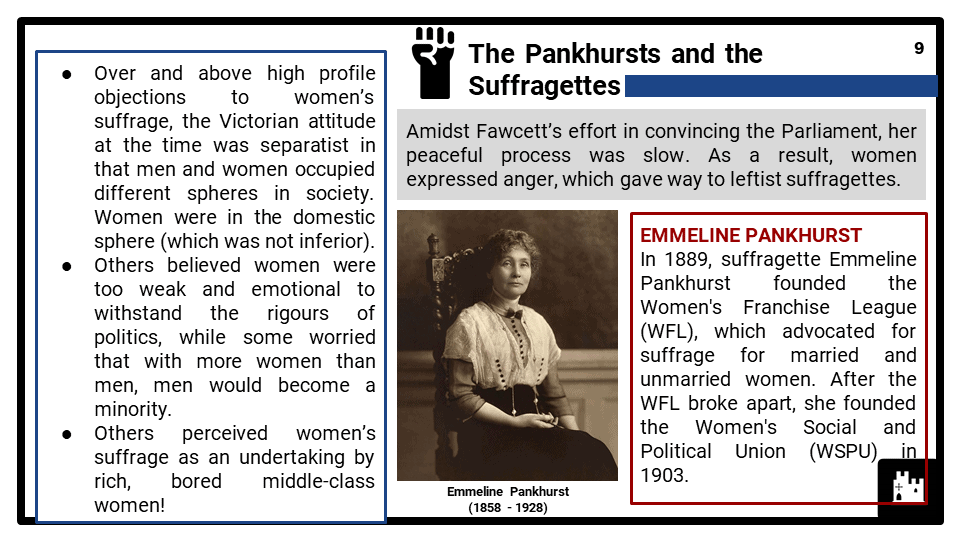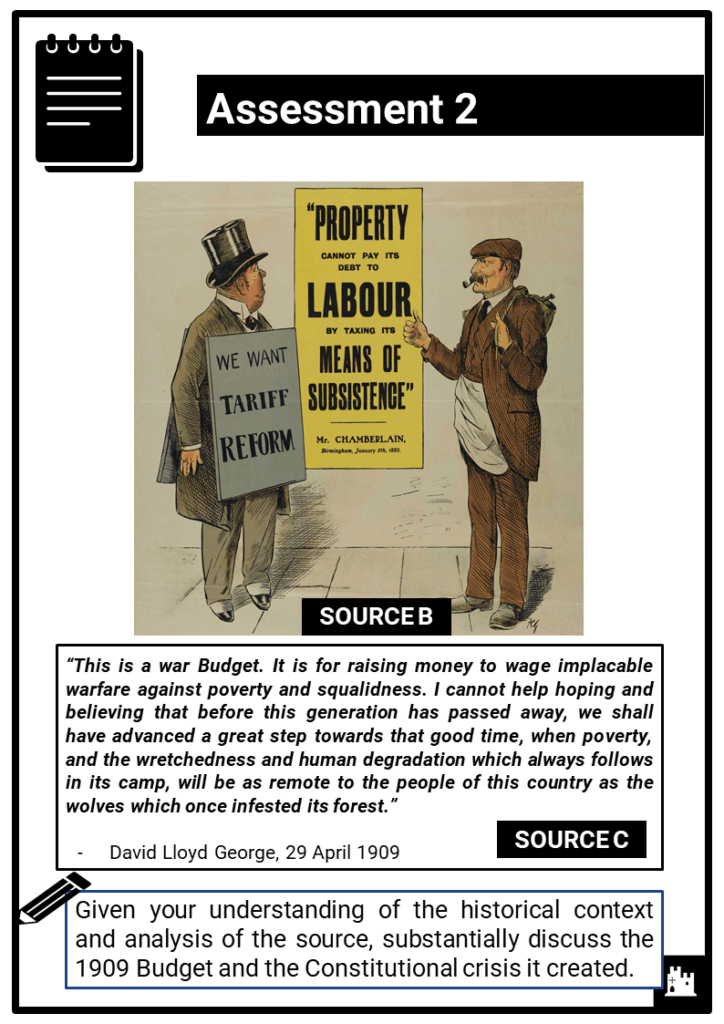Teach any Eduqas module 1C: Empire, Reform and War, Britain, 1890-1918, no prep needed!
Do you want to save dozens of hours in time? Get your evenings and weekends back? Be fully prepared to teach any Eduqas GCSE topic 1C?
Every Eduqas topic 1C is covered, and each module comes complete with:
Eduqas GCSE History Component 1: Studies in Depth
Written examinations: 2 hours (comprising two papers of 1-hour duration each)
50% of qualification 100 marks (plus 6 marks for spelling, punctuation and grammar and use of specialist terms)
Learners study two Studies in Depth, one British and one non-British, from eight options in total. This component focuses study on substantial and coherent short time scales. Studies in Depth will provide learners with the opportunity to study history in greater depth and consequently understand the complexity of a society or historical situation more effectively.
Studies in Depth will focus study on different historical eras and different geographical contexts. This component encourages learners to use a wide range of historical sources. Learners should also study different historical interpretations of specific events and issues.
The two options studied must be from different historical eras (Medieval, 500-1500; Early Modern, 1450-1750; and Modern, 1700-present).
Component 1: Studies in Depth
Sub-section: British Study in Depth
Module: 1C Empire, Reform and War, Britain 1890-1918
This option focuses in-depth on selected themes and issues relating to the history of Britain during the period 1890-1918. Candidates will be required to consider the main features of culture, political and social reform, problems with Empire and the effects of the First World War at home and on the Western Front. Candidates should develop an awareness of how aspects of life in this period have been represented and interpreted, and how they have generated wider historical debate. They should also address the key questions in each topic area using a range of historical sources
Key Questions and Required Content
- The Second Boer War Why was the Second Boer War so significant for Britain during this period?
- Reasons for the war; early Boer success; relief of British garrisons; guerrilla warfare; scorched earth and concentration camps; changing attitudes in Britain.
- Political developments What political developments were there in Britain at the start of the twentieth century?
- Liberal government and reform; 1909 Budget and the Constitutional Crisis; 1911 Parliament Act; power of the trade unions; growth of the Labour Party.
- Social reform Why was there a pressing need for social reform in this period?
- The extent of poverty in the late nineteenth century; reports of Booth and Rowntree; educational reforms; Old Age Pensions 1908; National Insurance Act 1911.
- Women’s suffrage How was the cause of women’s suffrage advanced during this period?
- Millicent Fawcett and the Suffragists; the Pankhursts and the Suffragettes; Emily Davison; tactics used; the Act of 1918.
- Culture and fashion What were the main features of culture and fashion during this period?
- Literature – Hardy, Shaw, HG Wells, Beatrix Potter; changes in fashion; the music hall; development of cinema; sport.
- The Western Front What was life like on the Western Front during the First World War?
- Tactics on the Western Front; new technology; case study of a major battle such as Ypres; Somme; Verdun; life in the trenches.
- Impact of the First World War What was the impact of the war upon life on the Home Front?
- Recruitment and conscription; propaganda; role of women; role of government - DORA; growth of disillusionment; attitudes at the end of the war.






